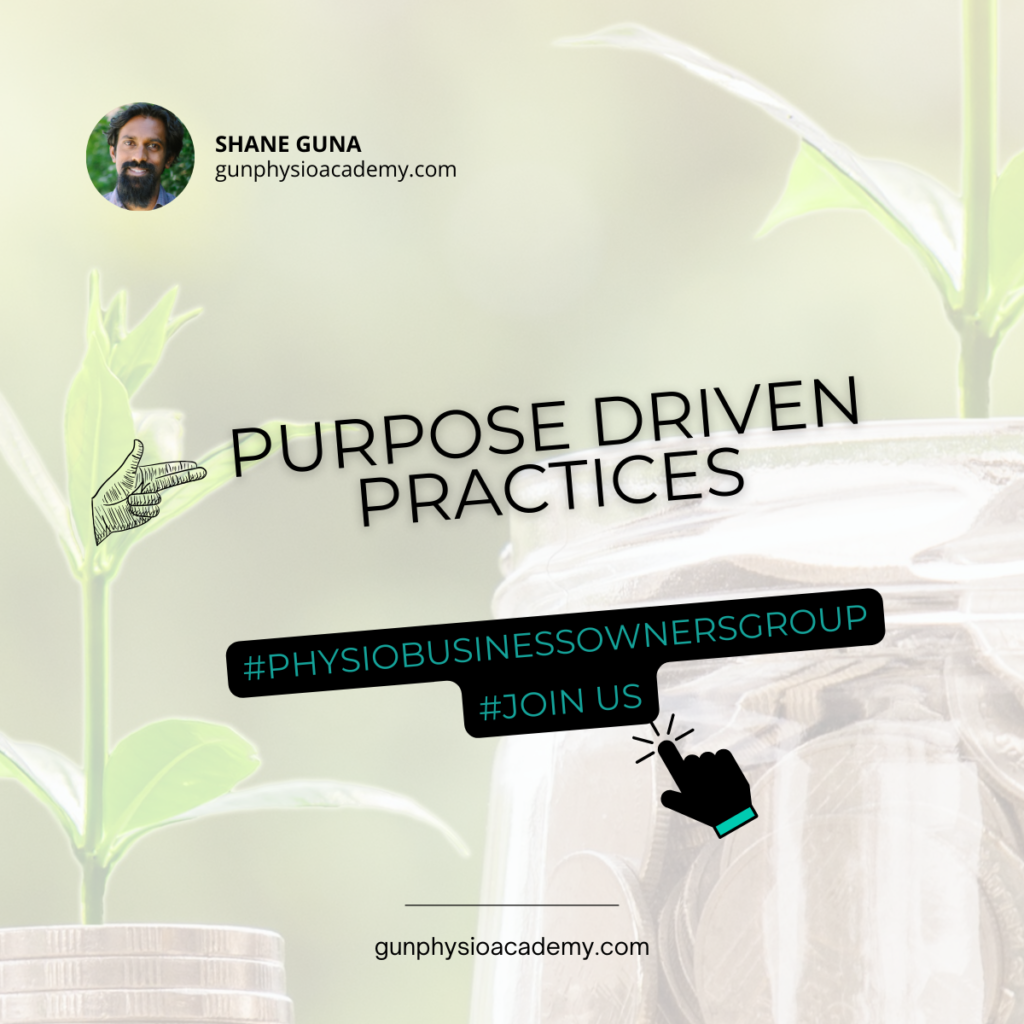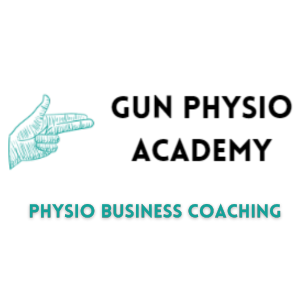Physio’s often talk about delivering high value care, I find this phrase a bit counter-intuitive.
What is valuable to one person isn’t always valuable to another.
Are we consistently delivering high value care, or are we guilty of standing on a soapbox?
“Service, please.”
Before we talk high value care I thought I would talk about service and essentially THE challenge occurring in just about every clinic in town.
So many private physiotherapists, particularly those new to the private sector, see themselves as more akin to a “consultant”.
We definitely do consult with people and provide them advice, education, onward referrals, etc etc.
But we are also a service provider.
There is something a lot of people are seeking from our care, whether they state it explicitly or not.
This is a HUGE mental hurdle that many young therapists, myself included, struggle to get over.
I remember my first ever placement in private practice with a legend named Tim, who had seen it all in his time.
He explained to me the primary difference with public health and private practice was that:
…people want to know what they are getting for their ‘hard earned’.
We are providing a service that people are quite happy to exchange money for.
But we actually need to provide something in return.
Something of value.
Otherwise they will talk with their feet and they will happily go elsewhere.
And in spite of overwhelming evidence to support exactly this fact (see new grads recall list), year-in-year-out, we end up having the exact same conversations with our new starters.
Dualism
One thing I would say here is that there is a certain dualism, or cognitive dissonance to private practice.
We need to be able to hold more than one idea in our heads at a time.
It’s something people need to quickly get comfortable with because in the private sector you simply can’t separate money and results.
The client is coming in with this mindset, regardless of whether you are a manual therapist or an exercise only type, or some form of hybrid.
Money makes the world go ’round.
I don’t like it, I would love to treat everyone for free and just get great outcomes and help people with their pain.
But at the end of the day we all prefer to eat at dinner time and have a roof over our heads – and to go further into Maslow’s hierarchy, many of us even want to self-actualise.
Money mindsets influence high value care
Like many things, the longer you have held a particular belief, the harder it is to break.
A lot of your beliefs around money, service and high value care stem from what you have been brought up with.
Blame your parents.
A lot of us don’t exactly come from money ourselves.
I would have never seen a physio when I was young.
My mum saw a physio for her neck once, about 20 years ago, I was there: She brought in her X-Rays (lol) She received a hot pack and tens machine A bit of a massage and chat with the therapist (who was off popping between rooms) And a brief exercise program to finish (stick figures).
This WAS the classic physio-in-a-house in suburbia scenario of the late 90’s / early 2000’s.
She never went back again; she didn’t see the value here.
I don’t see the value in this either.
As much as I am pro applying the principals of good service, this style of therapy is NOT good service in the modern world – that’s essentially what I call a physio factory.
These types of factories will get you the same results you could literally get anywhere.
Where things breakdown for high value care
I think a lot of young physiotherapists agree; they see most of the above as low value.
They want to push away from this, they’ve been trained to poo-poo anything that doesn’t have the strictest evidence base.
But they are also ignoring one major factor – real world evidence.
Rightly or wrongly, our entire profession was built by practices like these.
Whether my mum wanted it or not is irrelevant – there was still a population of people who were and still are quite happy with this treatment.
The ‘therapy’ itself was exactly what they were after – and the baby really need not be thrown out with the (“evidence-based”) bath water.
We simply can’t remove the most fundamental component from our practice and expect our profession to survive commercially.
Most consumers would still prefer the above to just being handed a sheet of exercises (no matter how carefully crafted they are).
If we aren’t providing the right service, for the right client – we simply are not providing anything of value.
Reality check (what is high value care?):
DONE FOR YOU (DFY) services are valued much higher than DO IT YOURSELF (DIY)
That’s why people are happy to pay $20 for avocado on toast that costs <$5 to DIY.
Why I would much rather pay a plumber to fix my toilet than go and turn the water off and start tinkering about.
Two years ago Netflix literally introduced a “play something” button, to DFY the sticky part of choosing a show to watch.
People value Done For You and that’s why there are hundreds of businesses doing exactly that – like:
- Home cleaning services
- Laundry services
- Packing and moving services
- Uber
- Uber Eats
- Couriers
- Babysitters
- Dog walkers
- Car washers
- Jim’s Mowing
- Jim’s Fencing
- Jim’s Handyman
- Jim’s (literally anything you can think of)
BUT, as we all know…
DO IT YOURSELF actually delivers the BEST RESULTS in the context of long term health.
If someone is able to get to a point where they can self manage, this sets them up with a lifelong skill.
Plus enhanced resilience; they have graduated through a very hard journey.
One would logically expect that everyone would want the best long term outcome.
I’d argue that they don’t.
We aren’t built to think like this.
We are actually hard-wired to think SHORT term.
Our systems are built on dopamine – and anything that helps release dopamine is good.
Like the tea/coffee you’re drinking while you read this.
A home exercise program that fixes your body and aligns with solid evidence?
Perhaps… but there is an overwhelming number of DONE-FOR-YOU options available and from a client’s perspective, it’s easy to see why they might choose this instead.

You have a sore tooth…
Imagine you wake up tomorrow morning with a sore tooth and manage to get a same-day appointment with the dentist (massive win).
Now you wouldn’t be super happy if your dentist just told you to brush your teeth and floss twice daily and gave you a big bill.
You want them to scrape or at least stick something in your mouth to justify their price.
You want them to find something wrong and make it right.
It NEEDS to feel better.
The dentist is DFY.
So is the Doctor, plus a prescription to DFY your health.
Surgery? Obvs.
See where I’m going here?
DONE-FOR-YOU health services are awesome.
They are.
You turn up with a problem and someone else fixes it for you.
That is my definition of awesome.
But they have their downside especially in the musculoskeletal world…
…like never having to take personal responsibility for your own health.
And that’s where things start to gets very preachy.
Just do-it-yourself!
We as health practitioners are superstars of adverse health prevention. We are the spitting image of health, done correctly. We go to the gym, we run, we do active jobs. We are the DIY professionals of our own personal health. And we are great at trying to sell this mindset to others.
One that we’ve built from years of sports and exercise and university games.
It makes sense, it’s a great mindset to sell and it will definitely get results long term.
But many people really don’t want to DIY everything in their lives…
So we often have to settle in at the adjacent space.
We need to meet people where they are.
Done with you
Done With You (DWY), is what modern physiotherapy offers, generally in a 1-1 format.
And nowadays often in a nice, comfortable, private room.
DWY allows space for healing.
It allows for conversation, for learnings from both parties.
It’s by far the better model.
It fits the Biopsychosocial Model amazingly well and is built for longer-term results.
There’s only one catch.
It’s hard to deliver.
Often substantially harder than most people anticipate when they enter the field.
And many people give up, and give up early because of this.
How would Pareto demonstrate high value care?
There is a way to deliver high value care, done for you service and it involves a side-bar over to the Pareto Principle.
“The Pareto principle, also known as the 80/20 rule, is a theory maintaining that 80 percent of the output from a given situation or system is determined by 20 percent of the input.”

This means the majority (80%) of a consult can be spent where the client perceives the value to be – the therapist can meet expectations, and then easily deliver the necessary guidance (20%).
In other words, what you do for 20% (advice, exercises etc) may truly get the biggest outcome (80%) but it doesn’t necessarily need to take all the time in your consult.
In fact, it can easily be done in about 4-5 mins.
The recency effect means people will more than likely remember the last thing you say…
And they are far more likely to engage with it if the entire therapy experience has been pleasant for them.
This is what a lot of “modern” therapists are really good at delivering compared to 20 years ago:
For starters you will now get 100% attention for your entire consult…
- Your therapist will also take time to work through your personal story
- Offer empathy (yes, if you’ve ever been in actual pain this is worth paying for)
- Provide some form of treatment (needles, massage, mobilisations, taping) within a clinically reasoned framework
- And give you a treatment plan (verbal or written) with a diagnosis, a prognosis, amount of sessions/time required and an expected outcome
- And they will almost always give you something to do at home
The skill of the therapist is to do this is such a fashion that the client feels a connection.
But also to ensure they don’t feel like they were ‘on the table for 5 mins‘.
This is literally the most common complaint about physio services and it is killing our reputation.
Nobody should ever walk out of a consult feeling short changed.

Meet them where they are
A lot of people come to physio wanting a DONE FOR YOU approach.
And a lot of practitioners see these people, and give them a DO IT YOURSELF response, with a two week follow up appointment.
This is an absolute DISASTER in a business context.
Most owners are spending a small fortune on digital advertising, which attracts these exact clients.
They are clicking on Google ads because it’s the first thing that comes up – they aren’t doing it because they have an intense passion for learning about their health.
They are riding the dopamine train, and I bet they feel somewhat better just for booking their appointment!
Human beings want the best results with the least effort – that’s just part of our biology.
The fact is everything we do is VALUABLE.
Whether it’s a massage, mobilisation or manipulation (Done for you)
A Pilates or rehab program (Done with you).
Or a home exercise program (DIY)
But value perception can be dramatically different across clientele.
And the skill of a great therapist is choosing the right treatment, at the right time, for the right person.
PS. I’ve written a bit about how I think AI is going to impact healthcare.
It’s not going to be giving massages (DFY).
Or doing joint mobilisations (DFY).
Or listening intently to people’s stories and sharing their emotional ups and downs and giving them real empathy (DWY).
But it will very soon be able to replace the DIY side of physio – writing exercise programs.
This is not such a bad thing, unless that’s all that you know how to do…





